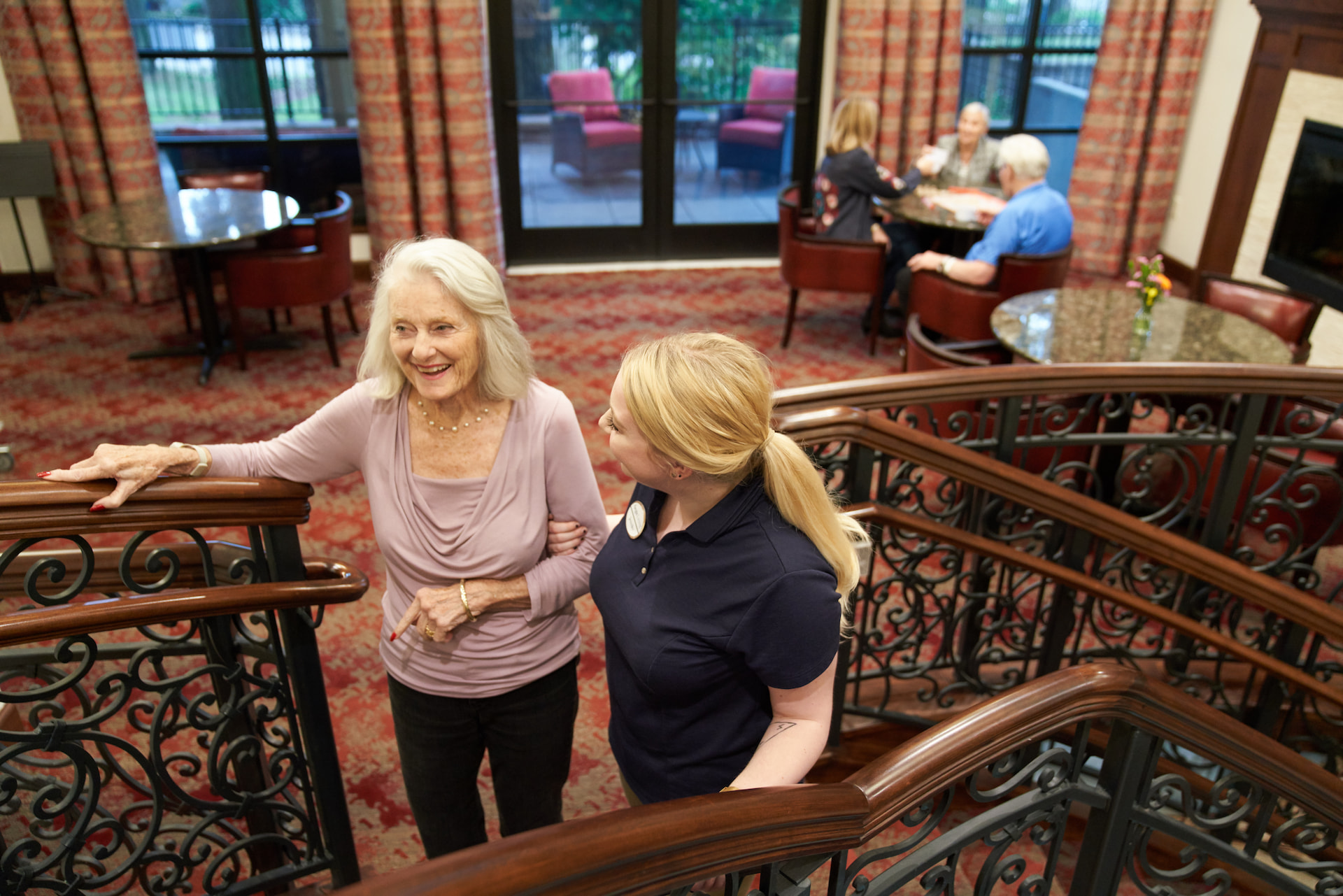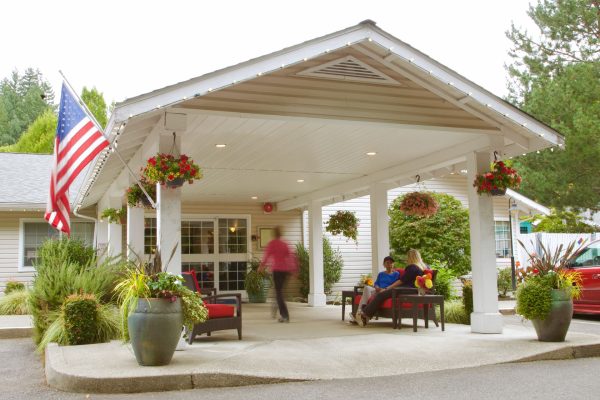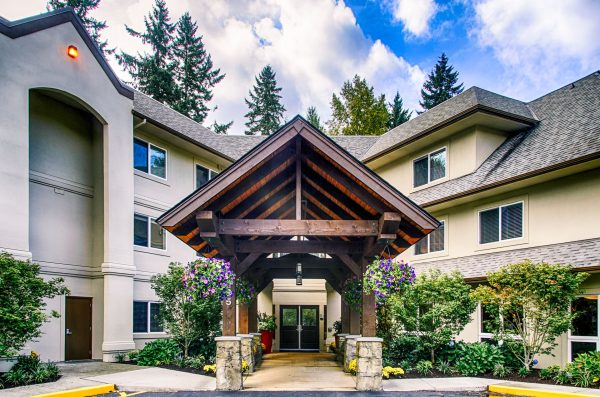
How to Have Conversations about the Move
For the health, safety, and well-being of your loved one with dementia, moving into a memory care community can improve their quality of life. But that doesn’t mean that everyone will see it that way. Family members may be in denial, and your loved one may resist the need to move. It is important that everyone is on the same page regarding their long-term care needs. Open the lines of communication, break a lengthy conversation into smaller ones, and involve your loved one or parent only if they can participate. In the case of memory loss, it is better to have the conversation sooner rather than later.
Dealing with Worsening Conditions
When your loved one is newly diagnosed, they may only show mild symptoms and may have become particularly good at hiding changes. But as they move through the various stages of memory loss, your loved one will experience changes in their condition that make it impossible to care for them at home. You may already be seeing signs that have made you worried.
One common issue is that individuals with memory loss tend to wander off. For example, they may think they need to catch a bus to work long after they have retired from a job. This confusion can lead to them leaving the house unannounced. Many with memory loss have changes in their personality or behaviors that can be difficult to manage alone, like repeatedly asking questions, being paranoid, agitated, or even aggressive.
What Can You Do if Your Loved One is Resistant to Move?
Residents who live in memory care can live a fuller life when assisted with personal tasks. Your loved one will benefit from a better diet, reduced stress, social interaction, better sleep, and exercise. Point out that moving into a memory care community can help them better adapt to the changes in their mental health.
Keep in mind that there may be a variety of reasons that they resist, like they don’t want to feel like a burden or hassle with moving or selling their home. You may need to slowly ease them into the idea of moving. Suggest that they go on a no-strings-attached tour of a memory care community. Make sure to point out the positive aspects on the tour—great amenities, fun activities, meeting new people, or being the center of attention.
One other idea to keep in your back pocket is a respite stay. Your parent can stay at a memory care community for a short-term visit. They may like it so much that they do not want to leave.
It’s normal to resist change, so ask for assistance from their new memory care community. Engage with the care staff as you prepare for this transition. They are familiar with the challenges of a new resident, and their experience can be key in helping make a smooth transition.
Visiting Before the Move
Bring your loved one to their new memory care community to visit before they move in. Giving them a glimpse into their new home may help them get excited about the move. Depending on your situation and how quickly they may need to move, plan a few visits to get familiar with the staff. Coordinate with caregivers to see if your loved one can take part in an activity a few days prior or attend an event in the community. Everyone feels differently about a move, so you may want to help your loved one get comfortable with their new surroundings over the course of several visits.
Packing for Your Loved One
For residents with dementia, you want to limit the number of items that you bring. Too many choices, especially in the case of their wardrobe, can be confusing and frustrating. And if your loved one struggles with anxiety and agitation due to memory loss; they may not be able to participate fully in the packing process.
You may need to make the decisions of what to keep and move for your loved one. Observe them as they move around their house. Are there items that they use often? Are there things, like blankets or clothing, that they find comforting? Limit the number of decorative items to things that are more functional or spark good memories. You want their new space to be homey, familiar, and reflect their personality but not overcrowded or overstimulating.
Schedule the Move-In for Their Ideal Time of Day
You will notice that your loved one may be better or worse, depending on the time of day. In the mornings, your loved one may be well-rested and have more energy. The evening may bring on confusion due to sundowning and tiredness. Coordinate with the memory care community to move your loved one in at the time of day that is best for their energy level and mood. And it can be difficult to do but try to stay as close to their normal routine as possible to make the transition easier on them.
Meeting Caregivers & Staff
Meet the staff who will be caring for your loved one and establish a relationship. Get to know their shifts, who will be helping your loved one, and what to expect from their care. Check in with them often. Your loved one may no longer be able to share the changes that they are experiencing, but their care staff can inform you about changes in behavior and mental health. You want your loved one to be healthy, happy, and comfortable in their new home. The staff will play a significant role in this successful transition.
Sharing Your Loved One’s Story
Knowing personal information about your loved one will help their care staff find ways to reach them or communicate with them. It’s important to introduce your loved one to the staff. Share with their caregivers your loved one’s background, where they used to work, family stories, and what their personality was like before memory loss. This information can be helpful for staff to use during their care, especially when redirecting your loved one.
Trusting They’ll Be Safe & Happy
Moving a loved one with dementia into a new community can be challenging, and some setbacks will occur. Know that it will get better. Your loved one is surrounded by caring and compassionate staff who are skilled at helping new residents navigate their new home—no matter where they may be in the progression of their memory loss. There will be challenges along the way. They may complain or wish to go home. This is normal and to be expected but with patience, time, positivity, and even humor, they will settle in and adjust. You will adjust too. Just trust that you have done your research and have placed them in a community that will protect them and keep them healthy, safe, and happy.
What is Transitional Trauma?
A memory care community is equipped to meet the unique needs and behavioral changes of a senior with Alzheimer’s or another form of dementia. The around-the-clock care staff will ensure your loved one is safe and well cared for—no matter what they may be experiencing. But understand this move can cause distress in someone with dementia, which is called transitional trauma.
Transitional trauma is one of the unfortunate side effects of getting your loved one professional care. It can last for a few hours, days, longer, or not at all, when they move into a memory care community. How, or if, they experience transitional trauma is individual. And how long it might last is on a case-by-case basis. Transitional trauma is a normal part of the process that may occur.
Tips to Ease Transitional Trauma
Don’t Share Too Early. You may want to share with your loved one that they are moving when it gets close to the date of their move. Giving them a month or more in advance may cause undue anxiety or can be too difficult for them to understand properly. You know your loved one best, but if you try to build up excitement for the move with a long lead time, this can backfire.
A Little Fib May Help. Depending on the progression of their memory loss and confusion level, you may want to try a little fib to ease the transition. You may want to tell them that they are staying for a brief time at a hotel. And as they spend more time in their “new hotel,” they will become more comfortable.
Bring Familiar Comforts from Home. Surrounding your loved one with familiar items like a much-loved chair and family photos or comforts like their favorite blankets and well-worn teacups can help a new apartment feel like home immediately.
Take Care of Yourself. During the best of times, a move can be stressful. But if you are caring for your loved one and managing their move, this can place a lot of stress on a caregiver. Treat yourself to alone time, a manicure, or a walk in the fresh air. Try to get extra sleep and eat well to keep up your energy level for the move. Ask for help sorting through your loved one’s items or hire assistance to ease your burden.
It Will Take Time. Change is hard, and the transition can take time. But over the course of a few days or weeks, your loved one will bond with the staff, make new friends, and settle into a new routine. Be patient and gentle with your loved one and to yourself.
Our Aegis Living communities offer thoughtful amenities, engaging activities, new friends, and delicious cuisine in all our communities. Schedule a tour with an Aegis Living memory care community near you and discover how we can help as your loved one progresses through the various stages of memory loss.
Is Memory Care Right for Your Loved One?
Learning that your parent or loved one has been diagnosed with Alzheimer’s or dementia is complicated and unpredictable. Eventually, their symptoms and behaviors will change and worsen, but there is no set timeline. If your loved one has been diagnosed, it’s best to research your long-term care options early. If they can participate, bring them along on the search for a memory care community where they are comfortable. They may not need to move to a memory care community today. But more than likely, in the progression of their memory loss, they will need greater care one day.
Also, it is important to point out that even families with the best intentions may not be able to safely care for a loved one with Alzheimer’s or another form of dementia. Caring for a loved one with memory loss is stressful and can be detrimental to the primary caregiver’s health and quality of life. Their loved one’s behaviors can be erratic, redundant, and even violent. They can forget to take their medication, to eat, what year it is, and your name or who you are, which can be devastating. Seniors with dementia can be easily frustrated, stubborn, or paranoid, so they refuse to follow directions, change their clothes, or bathe. You might notice your loved one becoming agitated in the evenings due to sundowning or disrupted sleep patterns.
At a memory care community, they have the proper number of staff and training to handle any situation. The communities are designed to be comfortable and secure, so residents do not wander but have the freedom to move about the community. Your home may not be set up to handle all the features to make them comfortable, like lighting can help with sundowning, camouflaged doorways, security features like grab bars, and aromatherapy to decrease agitation. And the financial burden to retrofit your home may be impractical or even impossible. If your parent cannot care for themselves and you cannot provide the around-the-clock care and supervision they will need, then a memory care community can provide your loved one with a better quality of life.
Not all memory care communities are the same or offer the same services. We recommend that you determine what care services and features are most important to your family, then visit several communities. Take plenty of time to get all your questions answered. And if your loved one can take part in the selection process, you may want to bring them too. When touring the community, meet other families and the care staff who can give you useful insight into the type of care they will provide. The right community will help your loved one live a fulfilling life with the care and dignity that they deserve.
Resources

Spend Father’s Day in an assisted living community
As you prepare to celebrate your father and all he means to your family, you may won...

Memorial Day: A Day of Honor
At Aegis Living, it has been our privilege and pleasure to care for many veteran...

Ready to Find Your Perfect Community?
See what Aegis Living has to offer near you! If you’re feeling overwhelmed, just give us a call and we’ll be happy to guide you.
Communities Nearby

Issaquah
780 NW Juniper St
Issaquah,
WA 98027

Marymoor (Redmond)
4585 West Lake Sammamish Parkway NE
Redmond,
WA 98052

Redmond
7480 West Lake Sammamish Parkway NE
Redmond,
WA 98052